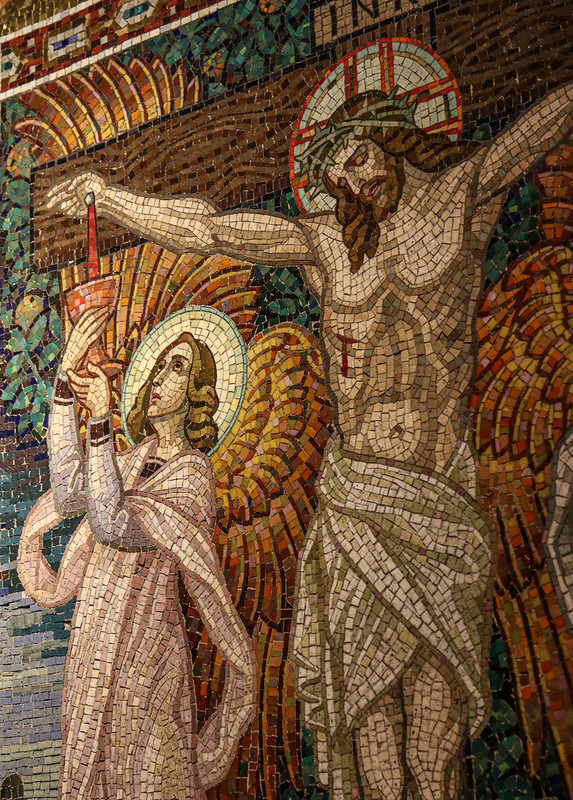From the Gospel acclamation: “A great prophet has arisen in our midst and God has visited his people.”
A reading from the holy Gospel according to Mark (today’s readings)
As he was getting into the boat, the man who had been possessed pleaded to remain with him. But Jesus would not permit him but told him instead, “Go home to your family and announce to them all that the Lord in his pity has done for you.”
Following the calming of a storm at sea, Jesus and the disciples arrive at the region of Gerasenes and encounter a man possessed by demons. Living among the tombs and restrained by chains and shackles he smashed, the demon-possessed man meets Jesus at the shore. Night and day, Mark tells us, the man cried out and bruised himself with stones. Recognizing Jesus by name, the demons identifying themselves as Legion, beg Jesus not to torment them. Granting their request, Jesus sends the demons into a nearby herd of pigs, which immediately rush down a steep bank into the sea. The man returns to his right mind, and the witnesses and nearby townspeople beg the man to leave, who first attempts to go with Jesus and then travels to the Decapolis to proclaim what Jesus has done for him. The people are amazed, and word of Jesus begins to spread. Sometimes life would have us living among tombs, possessed by inner demons. If Jesus drove out Legion, he can drive out any of those who name themselves or any who dwell in us in anonymity. “Let your hearts take comfort, all who hope in the Lord.”
God, stay beside me this moment and throughout the day as I meditate on the power of Jesus Christ your Son to name and cast out any evil within me. Thanks be to you, Lord, for the gifts of baptism and reconciliation and the true food and true drink of the Eucharist. Jesus commanded the possessed man to do one thing. Let me open my heart in gratitude to his command and find joy in it: “Go home to your family and announce to them all that the Lord in his pity has done for you.” Help me remember your compassion, Lord, as I place my trust in you.
Glory be to the Father, and to the Son, and to the Holy Spirit, as it was in the beginning, is now, and ever shall be, world without end. Amen.





